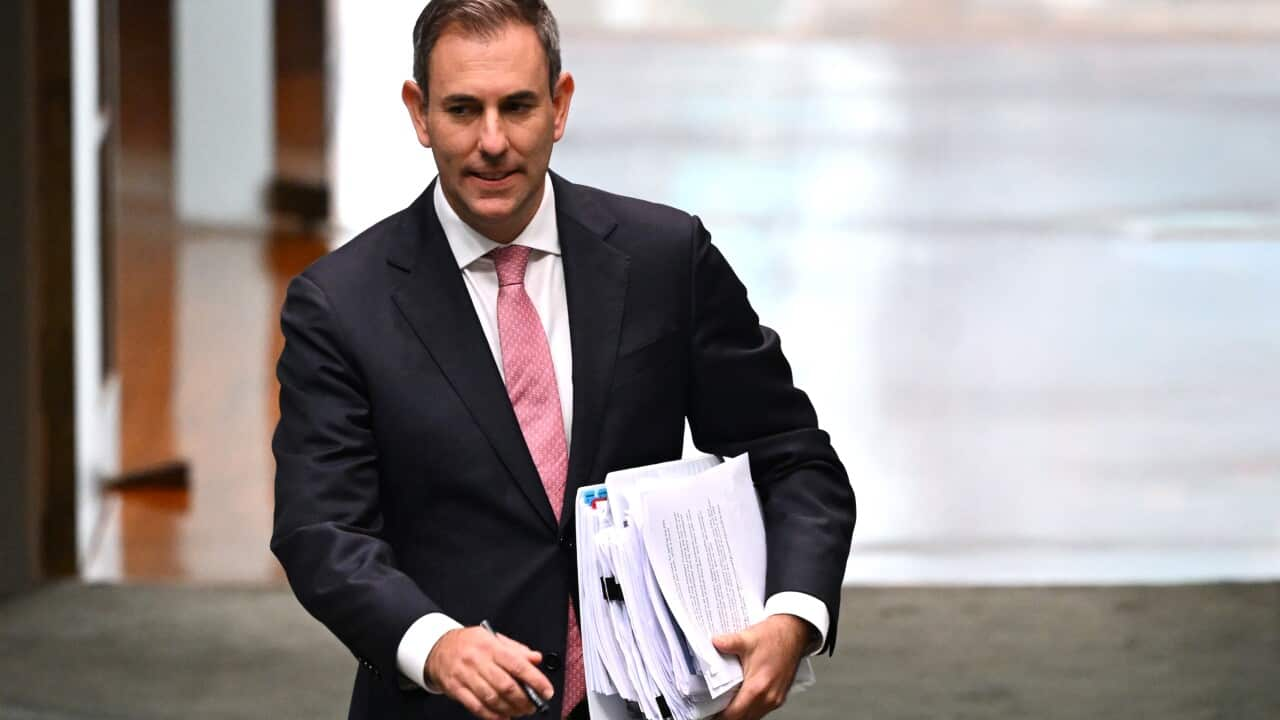TRANSCRIPT
Who controls your wage?
It might negotiated with your boss - or decided by an enterprise agreement.
But for about a quarter of Australians, it's decided by their award.
Economist and Director of the Centre for Future Work, Dr Jim Stanford, says an award dictates the minimum pay for any particular job.
"It's a set of wages determined by the Fair Work Commission in most cases, and in some cases by one of the state labour tribunals. So it means the individuals don't have to individually negotiate their salary with their employer is set out in the award. This is what they should be paid."
Each year, the government suggests how much the minimum wage should go up.
The Fair Work Commission then reviews their submission, along with submissions from business groups, and looks at economic factors, and comes to a decision.
This year, the government will ask for wages to keep pace with inflation - currently sitting at 4.1 per cent.
Treasurer Jim Chalmers says it's vital the minimum wage keeps up with cost of living pressures.
"Our submission to the Fair Work Commission will be all about making sure that low paid workers in this country don't go backwards. We know that cost of living pressures disproportionately impact people on the lowest incomes, that's why we are enthusiastic backers of the low paid in our country, it's why we will be making a submission a bit like the first two that we made in government to ensure that low paid workers don't go backwards."
The Fair Work Commission decides on the increase to award wages each year.
Dr Stanford says the government's submission is only one part of that process.
"The Fair Work Commission receives submissions from various parties, employers, unions, other advocacy groups, and also the government itself. And then they have a panel, an expert panel that sifts through all the evidence and looks at economic data regarding how labour markets are functioning, what's happening to inflation, how the overall economy is performing. And then they come up with a magic number that they'll announce likely in June, and it will come into effect on July 1st."
One of those groups making a submission is the Australian Chamber of Industry and Commerce.
CEO of ACIC Andrew McKellar says businesses can only afford a modest increase.
"If you take account of the generosity was seen in the past decisions by the Commission, the fact that they've erred in what their assessment of what's been underpinning that and its impact on wages growth, then we would say that this year, the decision needs to be significantly tighter. We would say that a number of not greater than 2 per cent is the most that we could justify."
Minister for Employment Tony Burke says more money in workers hands can benefit businesses too.
"Small business also needs to make sure that their customers are buying from them. These things work both ways. One argument that often gets put by our political opponents and that I think we need to reject out of hand, is this concept that somehow workers are to blame for inflation. As though we can ignore international pressures, we can ignore supply constraints. All of that can be put to one side and just sheet home the blame to workers. I think it's a ridiculous argument. It's a gas lighting of workers. People need to be able to keep pace with cost of living."
Liberal Senator Jane Hume says getting inflation under control should be the government's top priority.
"Well, I know that those that are on the minimum wage would be grateful for anything that they can get but the problem is if you have that minimum wage rise and there is still inflation out there, it's simply going to be eaten up. That's why getting inflation under control is the only solution to people's cost of living crisis."
Dr Stanford says there is no evidence to back up the claim that an increase to the award drives up inflation.
"There are traditional fears that if wages grow too quickly, that itself could cause further inflation. And set off a so called wage price spiral as it's often called. Our centres looked at that the numbers on this and there is no evidence at all of a connection between changes in the minimum wage and changes in the inflation rate. The wages are just too low and they apply to only a small section of the overall labour market."
The majority of Australians aren't on award wage.
Dr Stanford says this decision impacts other workers too.
"There can be some indirect or spillover impacts from the minimum wage decision each year. First of all, there are some individual contracts where you know, in theory, you've negotiated your own deal with your boss, but the boss tends to match what happens in the award system. Similarly, if you're in a union and you're engaged in enterprise bargaining, certainly what happens to the award wages is an important bit of information in that bargaining."













